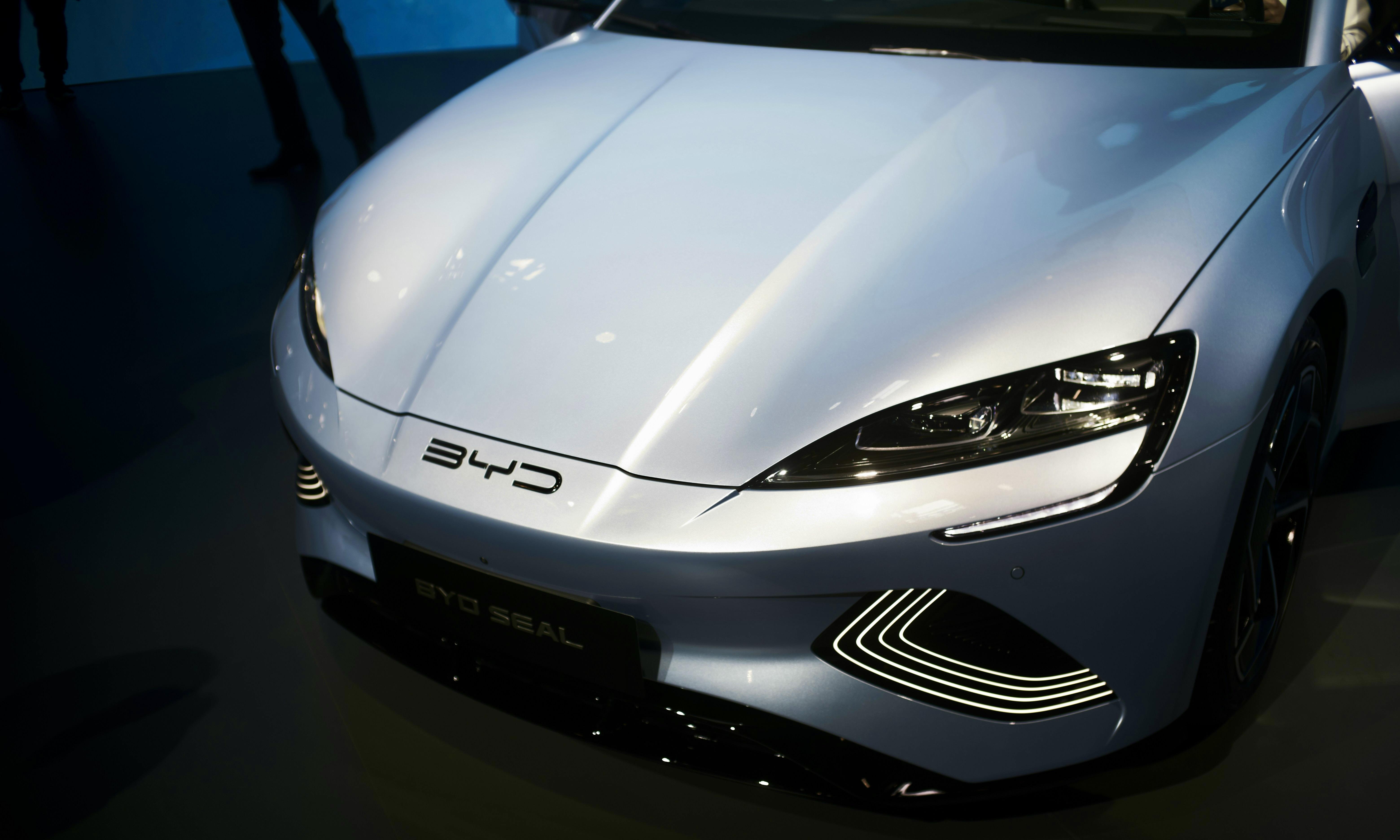BYD's workforce has surged to 700,000, doubling since 2019, as the company unveils new hybrid technology, heightening its rivalry with Toyota
BYD Workforce Outpaces Toyota
Privately held companies, like BYD and others in the EV industry, drive job development in China. According to statistics, China had approximately 30.57 million employees by the end of 2023, a 13% increase from 2019. Private enterprises contributed 81% of the growth or 2.85 million employment.
BYD's workforce is now roughly twice that of Toyota, which is an indirect effect of this growth. With an additional 470,000 employees since 2019, BYD's workforce has grown to nearly 700,000, and Toyota currently has 375,000.
Electrek.co reports that the key drivers of China's job development are automobiles, electric devices, and semiconductors, all of which are driving the country's burgeoning electric vehicle market. According to the IEA's Global Electric Vehicle (EV) Outlook 2024, China accounted for 60% of global EV and PHEV sales last year.
China emerged as the global leader in automobile exports. 1.2 million of them were NEVs, representing an 80% year-over-year increase. As the surge in EV sales continues, the report projects that by 2030, one in every three vehicles in China will be electric.
One of the most critical elements in exporting nearly 4 million cars last year was the already low costs. 55% of electric vehicles sold in China in 2022 were less expensive than their average internal combustion engine equivalent, based on an IEA report.
Hybrid Technology Advancements by BYD
Competition between the two continues. On Tuesday, BYD launched the latest version of a plug-in hybrid technology that enhances fuel efficiency and cost savings, intensifying competition with Toyota and Volkswagen, which still offer primarily gasoline vehicles.
Assuming a full tank of gas and a fully charged battery, the technology can guarantee a range of 2,100 kilometers.
At an event in Xian, the capital of Shaanxi province, Wang Chuanfu, head of BYD, showed off the fifth generation of hybrid technology. This generation uses a record-low 2.9 liters of fuel per 100 km (62.1 miles) of driving on fully charged batteries.
Rising Rivalry in the EV Market
As per Yahoo News, Japanese automakers are facing more competition from BYD and other Chinese electric vehicle (EV) companies in areas outside of Japan, like Southeast Asia, Australia, and the Middle East, where trade barriers and tariffs are lower.
Photo: Michael Förtsch/Unsplash



 Sony Q3 Profit Jumps on Gaming and Image Sensors, Full-Year Outlook Raised
Sony Q3 Profit Jumps on Gaming and Image Sensors, Full-Year Outlook Raised  Elon Musk’s Empire: SpaceX, Tesla, and xAI Merger Talks Spark Investor Debate
Elon Musk’s Empire: SpaceX, Tesla, and xAI Merger Talks Spark Investor Debate  Instagram Outage Disrupts Thousands of U.S. Users
Instagram Outage Disrupts Thousands of U.S. Users  Nvidia, ByteDance, and the U.S.-China AI Chip Standoff Over H200 Exports
Nvidia, ByteDance, and the U.S.-China AI Chip Standoff Over H200 Exports  Palantir Stock Jumps After Strong Q4 Earnings Beat and Upbeat 2026 Revenue Forecast
Palantir Stock Jumps After Strong Q4 Earnings Beat and Upbeat 2026 Revenue Forecast  FDA Targets Hims & Hers Over $49 Weight-Loss Pill, Raising Legal and Safety Concerns
FDA Targets Hims & Hers Over $49 Weight-Loss Pill, Raising Legal and Safety Concerns  SpaceX Prioritizes Moon Mission Before Mars as Starship Development Accelerates
SpaceX Prioritizes Moon Mission Before Mars as Starship Development Accelerates  Nvidia CEO Jensen Huang Says AI Investment Boom Is Just Beginning as NVDA Shares Surge
Nvidia CEO Jensen Huang Says AI Investment Boom Is Just Beginning as NVDA Shares Surge  Nvidia Confirms Major OpenAI Investment Amid AI Funding Race
Nvidia Confirms Major OpenAI Investment Amid AI Funding Race  Tencent Shares Slide After WeChat Restricts YuanBao AI Promotional Links
Tencent Shares Slide After WeChat Restricts YuanBao AI Promotional Links  Ford and Geely Explore Strategic Manufacturing Partnership in Europe
Ford and Geely Explore Strategic Manufacturing Partnership in Europe  Google Cloud and Liberty Global Forge Strategic AI Partnership to Transform European Telecom Services
Google Cloud and Liberty Global Forge Strategic AI Partnership to Transform European Telecom Services  SpaceX Reports $8 Billion Profit as IPO Plans and Starlink Growth Fuel Valuation Buzz
SpaceX Reports $8 Billion Profit as IPO Plans and Starlink Growth Fuel Valuation Buzz  Prudential Financial Reports Higher Q4 Profit on Strong Underwriting and Investment Gains
Prudential Financial Reports Higher Q4 Profit on Strong Underwriting and Investment Gains  Australian Scandium Project Backed by Richard Friedland Poised to Support U.S. Critical Minerals Stockpile
Australian Scandium Project Backed by Richard Friedland Poised to Support U.S. Critical Minerals Stockpile  Nvidia Nears $20 Billion OpenAI Investment as AI Funding Race Intensifies
Nvidia Nears $20 Billion OpenAI Investment as AI Funding Race Intensifies  Jensen Huang Urges Taiwan Suppliers to Boost AI Chip Production Amid Surging Demand
Jensen Huang Urges Taiwan Suppliers to Boost AI Chip Production Amid Surging Demand 





























